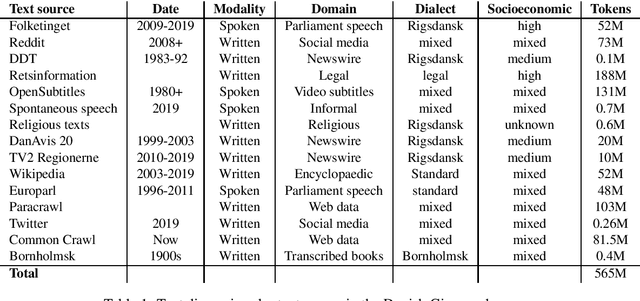Morten H. Christiansen
The Danish Gigaword Project
May 08, 2020
Abstract:Danish is a North Germanic/Scandinavian language spoken primarily in Denmark, a country with a tradition of technological and scientific innovation. However, from a technological perspective, the Danish language has received relatively little attention and, as a result, Danish language technology is hard to develop, in part due to a lack of large or broad-coverage Danish corpora. This paper describes the Danish Gigaword project, which aims to construct a freely-available one billion word corpus of Danish text that represents the breadth of the written language.
Memory limitations are hidden in grammar
Aug 19, 2019



Abstract:The ability to produce and understand an unlimited number of different sentences is a hallmark of human language. Linguists have sought to define the essence of this generative capacity using formal grammars that describe the syntactic dependencies between constituents, independent of the computational limitations of the human brain. Here, we evaluate this independence assumption by sampling sentences uniformly from the space of possible syntactic structures. We find that the average dependency distance between syntactically related words, a proxy for memory limitations, is less than expected by chance in a collection of state-of-the-art classes of dependency grammars. Our findings indicate that memory limitations have permeated grammatical descriptions, suggesting that it may be theoretically impossible to capture human linguistic productivity independent of cognitive constraints.
 Add to Chrome
Add to Chrome Add to Firefox
Add to Firefox Add to Edge
Add to Edge